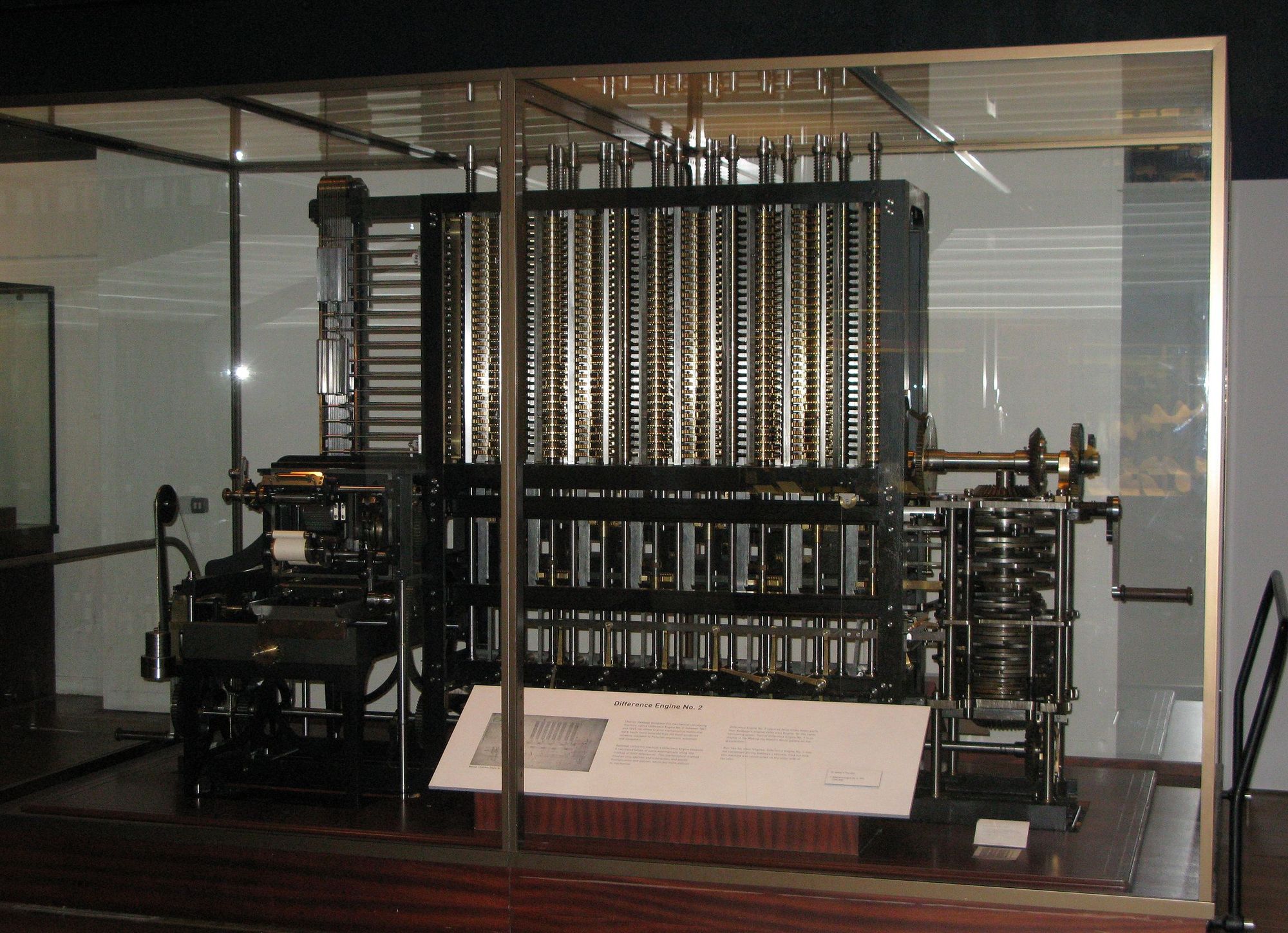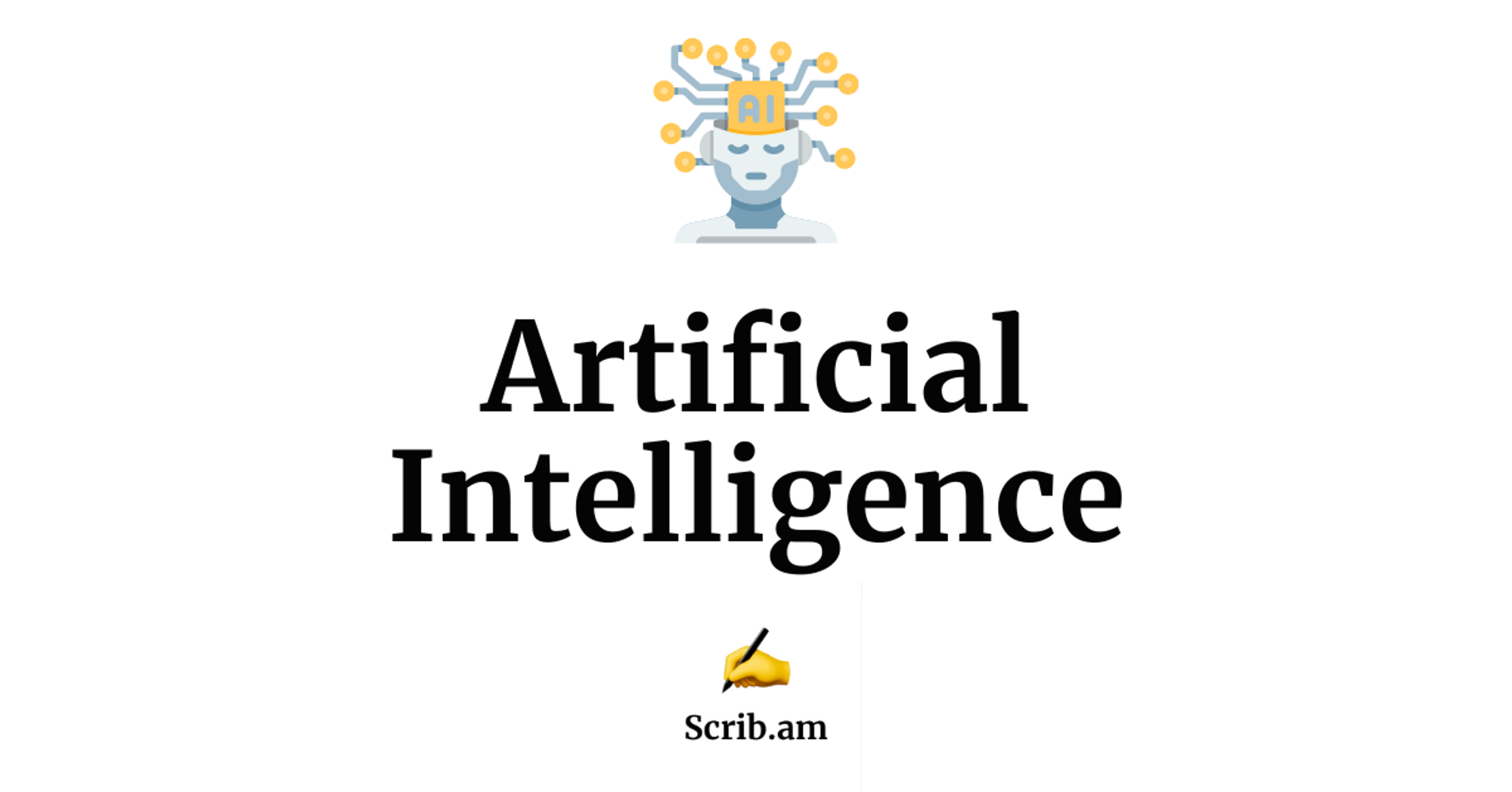Why is AI called “artificial”?
It might sound like a silly question to ask but it has strong implications.
We call AI “artificial” to make a distinction with the kind of intelligence which we consider to be “real” or “natural”, our very own human intelligence.
There’s no rational reason to assert that a form of intelligence developed by a digital brain should be deemed as less real than the intelligence developed by biological beings. A paper titled “Human- versus Artificial Intelligence” elaborated on the arguments against this overly anthropocentric assertion.
It would have been more accurate to label AI “DI”, for “Digital Intelligence”. But it’s too late, so we’ll stick with the AI acronym.
When did scientists start developing AI?
Since the early days of computing, scientists have been obsessed with the idea of automating cognitive tasks through algorithms.
The first automatic computing machine, the Difference Engine, was developed by the English polymath Charles Babbage from 1822 but it was never completed.
The Science Museum in London constructed the machine from 1989 to 1991, based on Babbage’s design (see below).

Alan Turing wrote a paper in 1950 titled “Computing Machinery and Intelligence” in which he addressed the topic of artificial intelligence, asking the question “Can machines think?”.
This paper marked the origin of what would become the standard Turing’s test, involving three participants: a computer subject, a human subject and a human researcher, asking written questions to both the computer and the human subject.
If the human researcher can’t determine with certainty which of both subjects is the computer, the computer passes the Turing’s test.
The term "artificial intelligence" was first coined by computer scientist John McCarthy in 1955.
In 1979 McCarthy famously wrote an article where he ascribed mental qualities to machines, sparking the debate of consciousness in AI. In 1980, the philosopher John Searle responded with his Chinese Room Argument, asserting that machines cannot have beliefs since they lack “understanding” and “intentionality”.
The most prominent players in the field of AI today in the Western world are Deepmind (Google), OpenAI and Meta AI.
If you want to browse a large collection of prompts + images, I invite you to check out Prompthero.com
The latest major achievements in the field of AI include:
At DeepMind
AlphaGo (2016): a computer program managed to be the best Go master in the world.
Alpha Zero (2017), an evolution of AlphaGo and AlphaGo Zero, which managed to learn Chess, Shogi and Go.
Agent57 (2020), which managed to outperform humans on all Atari 2600 Games.
Alphafold 1 & 2(2018 + 2021), which managed to accurately predict 3D models of protein structures.
At Openai
GPT-3 (2020), a language model of ~ 175B parameters trained on about 45TB of text data from different datasets.
DALL-E2 (2022), an AI system which can create realistic images and art from a text prompt in natural language (I developed this topic on my business blog).

At Meta AI Labs
PyTorch (2016), an open source machine learning framework, used for applications such as computer vision and natural language processing (NLP).

